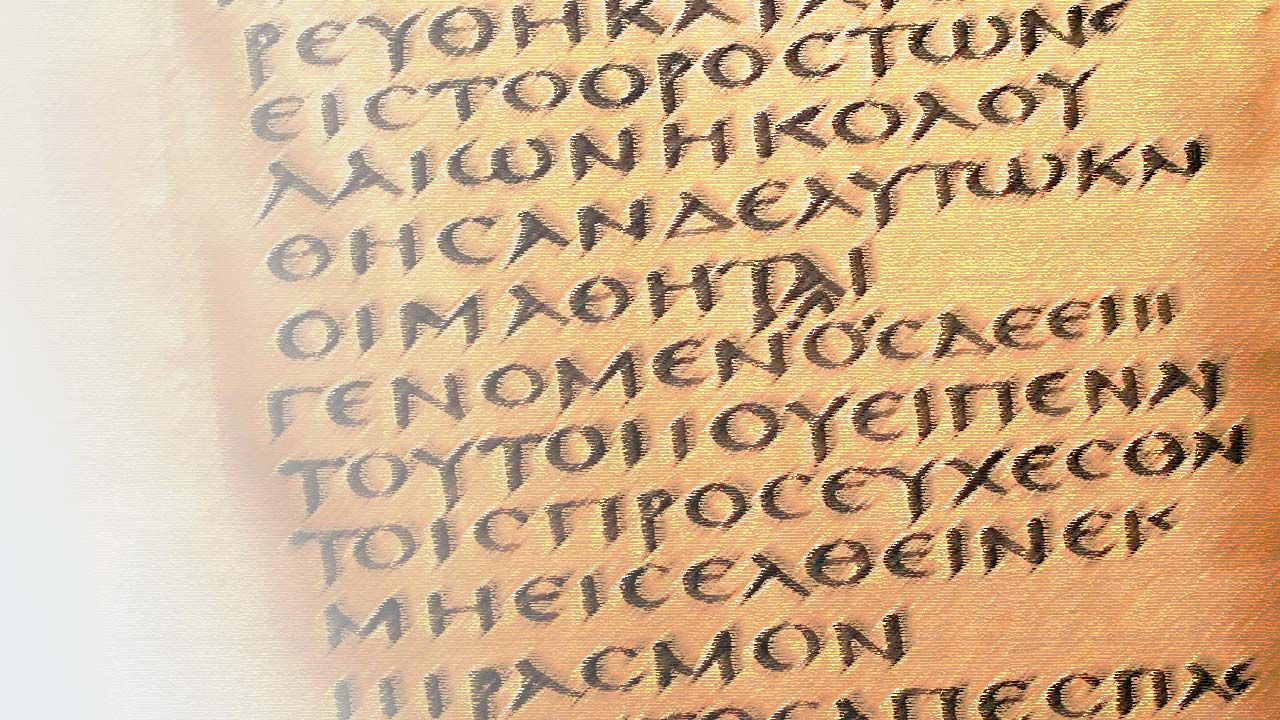Beyond the English Bible: Lexicon

Many people know that the Bible they read is a transition. How can a serious student of the Bible go beyond the English text of the Bible? The answer to this question is not always simple and it is not the same for everyone. The translations are never perfect, no matter how good the translators are. This is where a good Lexicon becomes a useful tool. We are all merely human and every translation is an interpretation as we bring our own baggage to the translation process.
Before I get much further I have to say that the best, most amazing, yet most difficult path is to take the time to learn Hebrew and Greek. But I realize that is not possible for everyone. And there are some alternatives which I promise to share with you. In my first article on the topic (Beyond the English Bible I: Concordance) I shared some concordance resources and links where you can find some of them for free. Some Bible students are satisfied with looking things up in Strong’s Concordance. But Stong’s is not the end of the line. In my second article on the topic (Beyond the English Bible II: Interlinear) I explained which English edition suites the beginners best. In this article, I want to take you a little deeper.
If you learned how to use Green’s Interlinear Bible than you can find any word in Hebrew or Greek. And if you have some original dictionaries, you should be able to look up the words that interest you in dictionaries besides the one provided by Strong’s. The trouble is most Hebrew and Greek dictionaries do not use numbers like Strong’s. You need to find the words by using their spelling and that means using the Hebrew and Greek alphabets.
The good news is that there are some trusted lexicons by Hendriksen Publishers which have an index to Strong’s numbers in the back. That means you can use these numbers to find the same words in this particular Lexicon editions even without knowing the Hebrew alphabet. One such lexicon is called BDB or Brown-Driver-Briggs English and Hebrew Lexicon (free online at www.biblehub.com) is an excellent tool for looking up words in Hebrew. BDB will take you much deeper into the meaning of original terms!

Another lexicon supplied with the Strong’s numbers (in the index section) by Hendriksen Publishers is Thayer’s Greek-English Lexicon of the New Testament. This dictionary will also take you far beyond most concordances. The definitions this Lexicon provides are much fuller and much more detailed. Sometimes we need the breadth in our study.
Unlike a Concordance (which does not require you to know Greek and Hebrew alphabets) a Lexicon is a dictionary that was designed to move you from Hebrew or Greek to English translation. But once you find those words in the Lexicon you will be surprised how much more detailed these tools compared to brief notes in Concordances. They provide more abundant reference information and give concrete examples.
If you are willing to do some work, you may be able to search Lexicons even without learning the original language alphabets, but it will be a real challenge. Without knowing Greek and Hebrew alphabets it may take a long time to look up even one word. This is why some people do not study the text on their own, get discouraged and run straight to the commentaries. I recommend studying the Greek and Hebrew alphabets. Many people who do not know the Hebrew and Greek alphabets use Bible software. And indeed, original language Lexicons can be accessed on many Bible Study websites that provide some of these excellent tools, absolutely for free.
Whether you choose to learn the Hebrew and Greek alphabets or not I can still provide you with some lexicons that can take you very deep in your word studies. Not all of them can be found for free and some of them are much more detailed than others. There is always a value in using multiple sources for research.
Gesenius’ Hebrew-Chaldee Lexicon to the Old Testament (free online at Tindale House). Another great resource. It is slightly older, but it will differ from BDB in scope and variety of notes and definitions it will provide on many words. Use these two resources simultaneously and you will get a fuller picture of what those words really mean.
A Concise Hebrew and Aramaic Lexicon of the Old Testament by William L. Holladay is another good and very affordable language resource. HALOT or Hebrew and Aramaic Lexicon of the Old Testament by Koehler, Baumgartner and Stamm’s is a superb resource, very detailed and broad. It is 5 volumes, though and thus it is expensive. You may want to use this one at the library.





